Join Us
Great Supporter and Friend of Aboriginal Christianity Father Frank Fletcher MSC
Catholic Communications, Sydney Archdiocese,
21 Nov 2013
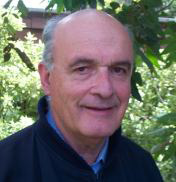
Father Frank Fletcher MSC, DTheol
One of the founders of the Archdiocese of Sydney's Aboriginal Catholic Ministry (ACM) and one of the city's most well-known and beloved priests, Fr Frank Fletcher MSC is gravely ill.
The 81-year-old cleric was admitted to Prince of Wales Hospital yesterday and this morning speaking on behalf of the family, his sister Terry Fletcher asked the people of Sydney for their prayers.
"Our brother has been very frail for some months now and he needs our prayers at this time," she told Catholic Communications this morning.
Fr Frank is due to celebrate his 82nd birthday on New Year's Day in just over six weeks' time.
Despite his age, he has just written a ground breaking book which reveals his profound understanding of Aboriginal spirituality and argues that in addition to a more authentic dialogue with Indigenous Christians, there is a need for a sympathetic understanding of the Dreaming which will deepen our own religious experience and help renew modern Christian Theology.
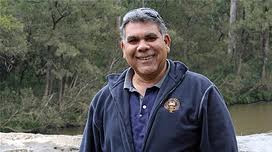
Graeme Mundine says Fr Frank has been an inspiration to Aboriginal people as well as the wider community
"Jesus and the Dreaming: Discovering an Australian Spirituality through Aboriginal-Christian Dialogue," published by St Paul's (rrp $24.95) is currently being printed and should be available within the next few weeks. But already international as well as national orders are being taken via the St Paul website for Fr Frank's book which is a collection of his writings over many years on Aboriginal spirituality and the challenges and possibilities for Western Christianity.
According to Fr Frank's sister, the book is a culmination of her brother's life's work.
"An editor collected his writings and he has been involved with updating these as well as overseeing everything that has gone into the book every step of the way," she says.
Terry is also particularly proud the cover chosen for the book is a reproduction of "The Last Corroboree," a superb painting by acclaimed Aboriginal artist Richard Campbell.
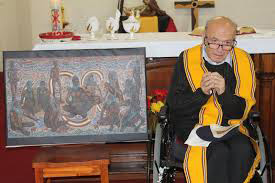
Fr Frank Fletcher honoured by Sydney Aboriginal Catholic Ministry 2013
In February this year, Fr Frank was honoured by the ACM at a special Mass and celebration lunch at the Church of Reconciliation at La Perouse where he was presented with a beautiful print on canvas of The Last Corroboree in recognition of the role he played in the founding of the Aboriginal Ministry and the unstinting support and encouragement he had given over many years.
Graeme Mundine, well known elder and executive officer for the Sydney ACM and Dr Elsie Heiss, another much loved elder and a member of the Wiradjuri nation who worked closely with Fr Frank to establish the ACM which began as a small room in the presbytery of St Mary's in 1988, were among the many who attended the celebration.
At the La Perouse Church of Reconciliation hundreds arrived to thank and pay tribute to Fr Frank.
During the lunch Sydney's Aboriginal Catholic community recalled how he had been asked many years before "Why have an Aboriginal Church?" To which Fr Frank had replied: "The Reconciliation Church is an asset to the community because faith gives strength against difficulties and people of faith are able to take on hard roles. A community needs to have an inner unity."
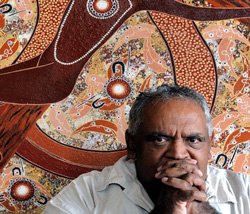
Artist Richard Campbell who painted the Aboriginal Stations of the Cross...
Graeme Mundine described Fr Frank today as someone who as a theologian had helped raise the thinking and awareness among the wider community about Aboriginal spirituality and its place in Christianity.
At the Church of Reconciliation as well as at St Mary's Erskineville where the ACM holds Mass on alternate Sundays, the liturgy, Lord's Prayer and Mass reflect the Aborginal people's deep spirituality, culture and traditions.
The Mass incorporates specially written Aboriginal prayers and often includes Aboriginal dancers and music such as the didgeridoo. In addition the Aboriginal Rite of Water Blessing and the Aboriginal Rite of Smoking or Fire are frequently included as Penitential Rites.
"Fr Frank has been exemplary in his tireless and unstinting support of the Aboriginal community and has been a good friend over many years. And although there is still a way to go, he has been instrumental in not only helping Aboriginal people discover Christianity but has enabled them to discover Aboriginal Christianity," Graeme says.
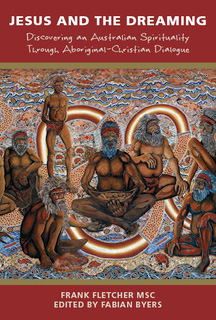
Jesus and the Dreaming: Fr Frank Fletcher's book due out later 2013
He explains that before people like Fr Frank, Fr Ted Kennedy and Mum Shirl, few understood that Aboriginal people had difficulty relating to Western Christianity. They had no idea about Northern Hemisphere animals that are used in many of the metaphors in Western Christianity.
"The Spirit of the Rainbow is our symbol of God crossing the entire sky which brings a whole new mindset for the modern Church and recognises the different symbols and concepts that represent God not only to the Aboriginal people but in other non-Western cultures," Graeme says and believes this is shows just how truly global the Catholic Church is.
"We are all Catholic and share Catholic values but the concept and symbols we use for God and the Scriptures may be different depending on our individual history, culture and spirituality across a wide variety of non European cultures."
He strongly believes Fr Frank has helped change perceptions within the Church about Aboriginal spirituality and how this can enrich Western Christianity and the Catholic Church in particular.
"We are all keeping Fr Frank in our prayers at this time," he says.
In addition to his close involvement with Sydney's Indigenous community and the ACM, Fr Frank has also been a long time supporter of St Vincent de Paul Society's Matthew Talbot Homeless Services extending the hand of friendship and providing pastoral and practical care to some of society's most vulnerable and in need.
Here are some MSC stories that tell of priests and brothers in action. More stories will be added as they come to hand, so please visit this page again.
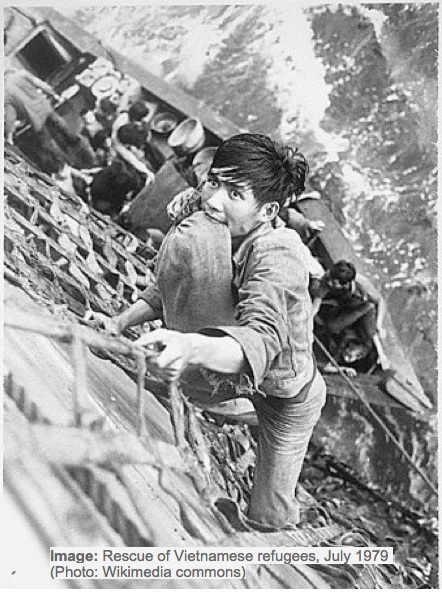 HyVong - Journey towards Hope
HyVong - Journey towards Hope
In Bowral in 1980 a small refuge and home called HyVong was formed by Father Strangman, of the Missionaries of the Sacred Heart. It lasted just four years, but it gave 'hope' to almost 50 detached and unattached Cambodian and Vietnamese young men, fleeing Communist reprisals against them after the Vietnam war and the horrors of the Pol Pot years in Cambodia.
Formation Process for the Missionaries of the Sacred Heart
There are three stages of formation:
Stage 1: Pre-Novitiate
This stage begins towards the end of January and finishes in late October.
The Pre-Novitiate Formation House is in Blackburn, Victoria and falls within the Catholic Parish of St Thomas the Apostle, Blackburn.
What does it involve?
It is firstly an experience of community life with the MSC’s. Regular community activities such as prayer and meals are shared together.
It also involves:
- An initial five day retreat
- Pastoral placement on a regular basis
- Meeting a wide variety of other MSC’s, visiting a variety of ministry settings and places
- Studies of MSC Australia and nearby countries where MSC are involved.
- Input on the origins of the MSC Order and religious life in general
- Introduction to Heart Spirituality – the Spirituality of Jesus
- Learning different models of prayer
- Introduction to Spirituality and Sexuality
- A growing appreciation of Professional Standards in the Catholic Church today
- An introduction to the Yarra Theological Union including the Heart of Life Spirituality Centre
- Preparation for the transition to the Novitiate
Stage 2: Novitiate
The Novitiate begins on the first Friday of November. It is situated in St Mary’s Towers, Douglas Park, NSW. The program runs for 13 months and therefore finishes in mid-December the following year. This is a quieter time of prayer by the novice with deep discerning of God’s presence and relationship.
It involves:
- An initial 10 day retreat
- An ongoing reflection on the MSC Constitutions of Life, Spirit and Mission
- A deepening appreciation and commitment to the vows of Obedience in Fraternal Charity, Consecrated Celibacy and Evangelical Poverty
- Experiencing a Thirty Day Retreat based on the Ignatian Exercises
- An intense Pastoral exposure following the retreat to put one’s desires into action
- A wilderness experience to deepen one’s love of God’s creativity (flora and fauna), and to appreciate more deeply one’s own ability to be in that environment.
At the end of the Novitiate the novice takes temporary vows, for one, two or three years.
Stage 3: Studies
Theological studies are undertaken at Yarra Theological Union (YTU) in Box Hill, Melbourne.
- Students whether clerical or brothers take up regular sessions of pastoral work. This may be in Blackburn Parish or other settings keeping in mind the mission of the MSC Society.
- During this time students will be prepared to make commitment as MSC’s for their lifetime.
- the theological input will pursue studies up to degree level or diploma as discerned.
For clerical students:
At the conclusion of undergraduate studies (normally 3 Years) the students will continue with Master of Theological Studies to assist them gain the expertise for priesthood (2 years).
- When all studies are completed the students are ready to be ordained to the Diaconate. Following this ceremony they take up pastoral settings fulltime (usually a Parish for about six months).
- Then in conjunction with the Church and its approval the deacon may be ordained priest.
For Brothers:
Following theological studies each candidate will undertake professional studies or trade in a ministerial field.
- A decision such as this is done taking into account their abilities and desires.
- This could take another two to three years to complete these requirements.
MSC Priests
As members of the religious family called the Missionaries of the Sacred Heart (MSC), we live out our calling as brothers and priests. That means that while all of us live out our commitment to religious life, for some our ministerial commitment is as ordained priests.
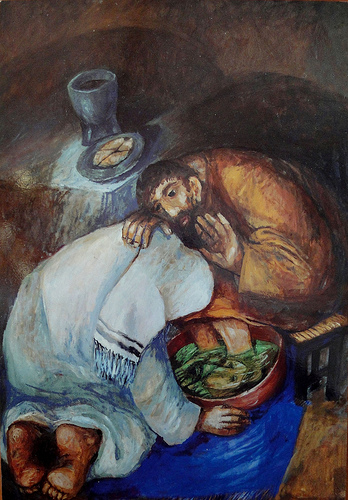 As MSC, seeking to witness to the love and compassion of our God shown in the life and person of Jesus, what image or model of priesthood do we seek to follow? Indeed, there can only be one image or model – that of the Jesus of the Gospels.
As MSC, seeking to witness to the love and compassion of our God shown in the life and person of Jesus, what image or model of priesthood do we seek to follow? Indeed, there can only be one image or model – that of the Jesus of the Gospels.
Perhaps the picture of Jesus' priestly ministry that most clearly exemplifies priesthood is Jesus who kneels down and washes the feet of his disciples (Jn. 13:1-15).
On the night before Jesus died for us, when he could have had the world at his feet, he chooses, instead, to kneel at the feet of the world in this most humble gesture of service and giving.
"I have given you an example to follow," says Jesus, "so that what I have done for you, you should also do" (Jn.13:15).
Living out our calling as MSC priests can be illustrated by looking at the priestly calling as outlined in the prayers and liturgy form the rite of Ordination and from some practical examples of MSC ministry.
Preacher and Teacher of God's Word: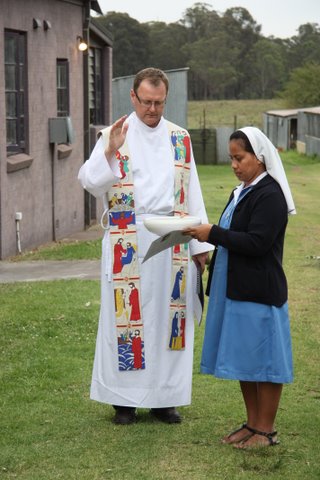
The first task of priests is to preach the Gospel of Christ, or as the prayer of the ordination ceremony puts it: "Meditate on the law of God, believe what you read, teach what you believe, and practice what you teach."
This does not refer simply to the homily at Mass but to all the work of a Missionary of the Sacred Heart. So for our men in Venezuela or South Africa it means promoting justice for the poorest and neediest people, so that they do not get left out or left behind. For in the Gospel these people are at the centre of all Jesus preaches and does. Likewise for an MSC working as a prison chaplain or helping a person with an addiction to drugs, gambling or alcohol it means treating each person with a deep respect and concern for their brokenness and pain.
Celebrating the Mysteries of Christ:
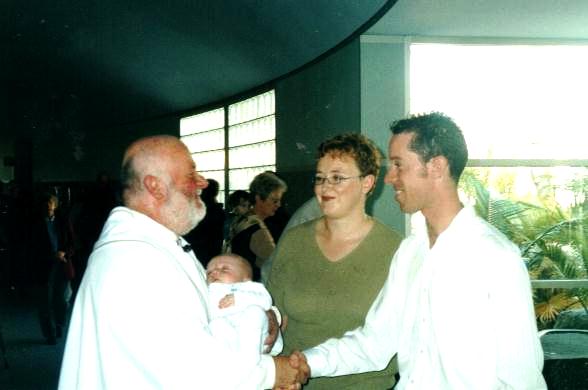 At ordination a priest is formally called to "celebrate the mysteries of Christ . . . for the glory of God and the sanctification of Christ's people."
At ordination a priest is formally called to "celebrate the mysteries of Christ . . . for the glory of God and the sanctification of Christ's people."
Our God is a God who draws near to us, to help, heal, listen and love us. It is a humbling privilege as an MSC priest to celebrate the Eucharist with the parish community, to baptise a new-born baby, to journey with a couple committing themselves to married life, to be in the presence of the sick and dying through the sacrament of anointing, and to witness to God's forgiving love in the sacrament of reconciliation. In the highs and lows of life, and in every moment in between an MSC priest tries to be an instrument of God's compassion in the world.
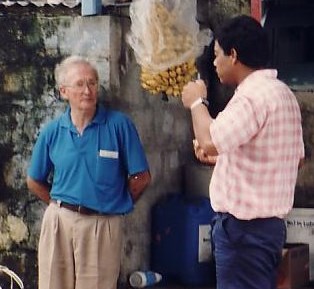 Following the Example of the Good Shepherd:
Following the Example of the Good Shepherd:
On ordination day each priest hears the words, "Always remember the example of the Good Shepherd who came not to be served but to serve, and to seek out and rescue those who were lost."
This is lived out in everyday situations of being available to listen to a worried student as a school chaplain, giving time to walk with the person trying to find their way to God during a retreat or comforting the family who are burying their mother.
With and For the People of God:
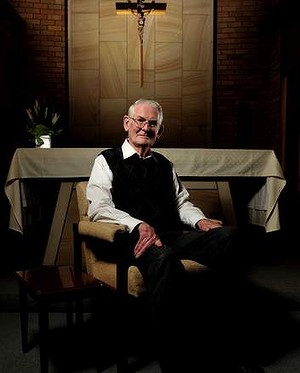
In a world where people can so often be divided, alienated, alone and lonely there is a huge need for working together and building up a real sense of community.
For a priest to look for special treatment or expect to be in control is often referred to as "clericalism" and is a long way from the example of Jesus. Instead, each priest is called to, "Remember that you are chosen from among God's people and appointed to act for them . . ."
Our life and ministry as Missionaries of the Sacred Heart is done in collaboration with those we seek to serve, recognising, celebrating and combining the gifts and talents of all God's people.
